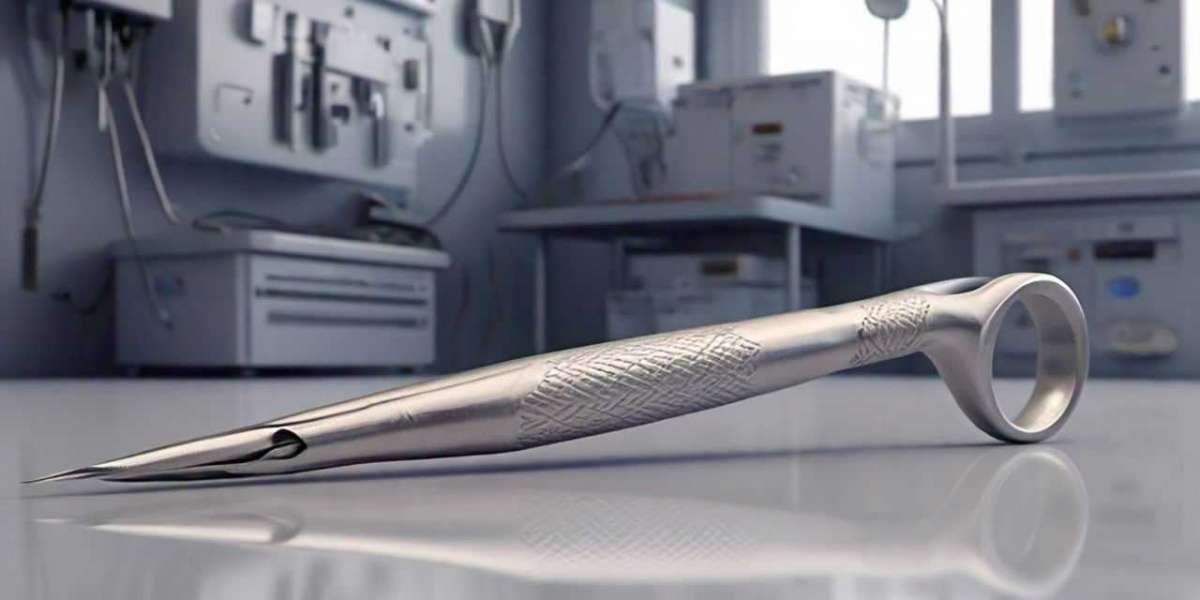How Proper Maintenance Extends the Life of Surgical Tools
Surgical instruments are critical for ensuring the success of medical procedures. However, maintaining these tools is just as important as using them effectively. Proper maintenance ensures that surgical tools perform optimally, reducing the risk of complications, improving precision, and extending their lifespan. This blog explores how effective care and maintenance can preserve the quality and functionality of surgical instruments.
1. The Importance of Maintaining Surgical Tools
Proper maintenance of surgical tools is essential for their longevity and efficiency. Surgical instruments undergo repeated use and exposure to harsh conditions like sterilization, which can cause wear and tear. Routine cleaning and care help maintain their sharpness and precision, ensuring that the tools function as expected during surgeries. Neglecting maintenance can lead to instrument malfunction, ultimately affecting the success of medical procedures.
2. Regular Cleaning to Prevent Damage
The first step in maintaining surgical instruments is proper cleaning. Instruments must be cleaned after each use to remove blood, tissue, and other residues. Failure to do so can result in corrosion, rust, or buildup that may affect their performance. Tools should be cleaned using specialized solutions and soft brushes to prevent damage to delicate parts. For detailed and specialized instruments, cleaning must be done carefully to ensure all areas are thoroughly sanitized.
3. Proper Sterilization: A Key Factor in Maintenance
Sterilization is a vital process that ensures surgical instruments are free of harmful bacteria, viruses, and other pathogens. Regular sterilization using autoclaves or other approved methods is necessary to maintain the tools’ functionality and prevent the spread of infection. However, over-sterilizing or improper sterilization techniques can damage instruments. Therefore, it is essential to follow the manufacturer’s instructions and avoid excessive exposure to high temperatures.
4. Sharpening Surgical Instruments for Optimal Performance
Many surgical instruments, such as scissors, scalpels, and forceps, require regular sharpening to maintain their cutting efficiency. Dull tools can cause unnecessary trauma to tissues, resulting in slower recovery times and increased risk of infection. Sharpening should be performed by professionals who understand the delicate nature of surgical tools. Properly sharpened instruments make surgeries more efficient and reduce the chance of complications.
5. Lubrication to Prevent Rust and Corrosion
Lubrication plays a significant role in protecting surgical tools from rust and corrosion, especially those made of stainless steel or other metals. After cleaning and sterilizing instruments, applying a light layer of oil can prevent moisture from affecting their surfaces. Lubrication ensures smooth movement of parts such as hinges and joints, reducing wear and tear and extending the lifespan of the instrument. It is important to use only approved lubricants that won’t interfere with the sterilization process.
6. Proper Storage of Surgical Instruments
Storing surgical instruments properly is another essential aspect of maintenance. Instruments should be kept in a clean, dry, and secure location to prevent accidental damage or contamination. Using sterilization trays or cabinets to store instruments after cleaning ensures they remain in good condition. Avoid storing surgical tools in damp areas, as moisture can lead to rusting and degradation over time. Also, ensure that instruments are stored separately to prevent scratches or damage.
7. Regular Inspections to Detect Early Damage
Regular inspections are vital in identifying any wear or damage to surgical tools before they affect their performance. Inspections should include checking for any bends, cracks, rust, or misalignment in the instruments. If any issue is found, the tool should be repaired or replaced promptly. Regular inspection helps prevent further damage and ensures that instruments are always in optimal condition.
8. Avoiding Overuse of Surgical Instruments
Excessive use of surgical instruments can lead to rapid wear and tear. It is important to ensure that instruments are only used when necessary and are rotated with others to avoid overuse. Overuse can cause dullness in cutting edges, reduced effectiveness, and premature failure of certain components. By limiting the usage of instruments and rotating tools between surgeries, you can extend their life and maintain their functionality.
9. Choosing High-Quality Instruments for Longevity
Investing in high-quality surgical instruments is the first step toward ensuring their longevity. Premium instruments are typically made from durable materials such as high-grade stainless steel, which are more resistant to wear and corrosion. At T Surgical Instruments, we provide high-quality ophthalmic surgical instruments that are built to last and perform efficiently with proper care. Choosing quality instruments ensures that maintenance efforts yield better results in terms of longevity and reliability.
10. Professional Servicing for Specialized Instruments
Certain surgical instruments, particularly those used for specialized procedures, may require professional servicing and maintenance. Instruments like ophthalmic surgical tools demand precise handling and care due to their intricate design. It is advisable to have these tools professionally inspected and serviced to ensure they function properly and maintain their accuracy. Regular servicing helps identify and address issues that could lead to instrument failure during surgery.
11. Preventing Damage During Handling
Careful handling is crucial to prevent accidental damage to surgical instruments. Instruments should be handled gently and with precision to avoid bending or breaking. Surgical tools should also be inspected for any signs of wear before use to ensure they are in optimal condition. Using the correct tool for each task and avoiding forceful maneuvers also helps reduce unnecessary strain on the instruments, preserving their quality and function.
12. Training Healthcare Professionals on Proper Maintenance
To ensure that surgical tools are maintained properly, healthcare professionals must be trained in proper cleaning, sterilization, and storage techniques. Regular training on the best practices for maintaining surgical instruments helps ensure that staff follow correct procedures and understand the importance of instrument care. By educating the entire surgical team, hospitals and clinics can extend the lifespan of their instruments and improve surgical outcomes.
FAQs
Q1: How often should surgical instruments be cleaned?
Surgical instruments should be cleaned immediately after each use to prevent the buildup of blood, tissue, and contaminants. Proper cleaning ensures the instruments remain in optimal condition for the next procedure.
Q2: Can poor maintenance of surgical tools affect patient safety?
Yes, improper maintenance can lead to tool malfunction, which increases the risk of complications during surgery, such as infection or inaccurate cuts, ultimately affecting patient safety.
Q3: How can I ensure my ophthalmic surgical instruments last longer?
Proper cleaning, sterilization, sharpening, and lubrication are key to maintaining ophthalmic surgical instruments. Additionally, professional servicing and careful handling will help extend their life and performance.
Q4: What type of storage is best for surgical instruments?
Surgical instruments should be stored in a clean, dry environment. Use sterilization trays or cabinets to prevent contamination or physical damage. Instruments should be kept in separate compartments to avoid scratching.
Q5: What are the signs that a surgical instrument needs to be replaced?
Signs that an instrument needs replacement include visible damage, loss of sharpness, rust, or misalignment. Regular inspections will help identify these issues before they affect the surgery.







